A New Year’s Resolution You Need to Make: Quitting or Reducing Sugar!
#SugarBalancedLiving
Hidden sugar is everywhere - from ketchup to soups, we often don't even realise how much added sugar we're actually eating. To make matters worse, a low sugar diet is crucial to being to attain many of our health goals, be it losing weight or simply maintaining a healthy diet. So, this year, let's make eating less sugar and junk food our doable resolution and beat cravings for good! Here's how to do it!
Happy New Year! I hope you had a fabulous holiday season? Can you believe it’s another new year?
As the new year kicks off AND we begin afresh, its time to start off the year with a bang: completing doable goals.
Many people are now making their New Year’s resolution to be a healthier person, get into gym workouts or to lose x amount of pounds, which are of course, are great admirable resolutions! But while some people may have only just started their resolutions, many of us struggle to keep health orientated promises past the first two weeks of January.
Every year it's the same old thing – you set some resolutions on January 1st, give them your all during that first week, but then life gets in the way and you begin to fade away from your goals. Year after year, this will tend to be a vicious cycle for most people especially when it comes to improving their diet.
But this doesn’t mean we have to be left helpless when it comes to achieving a happier and healthier life. The key here is making sure that you’re setting a realistic goal.
Some health resolutions and commitments are too general or just too difficult to follow through — like planning to lose a certain amount of pounds on a tight timeline, expecting immediate results or following a strict dietary regimen that doesn’t work for your body.
Choosing Realistic Goals
A crucial part of success and an important part of improvement is knowing what you can actually do in a set period of time or with your current skill set – you don't want to choose something that is not realistic.
So this year, I want you to change things up with a targeted, actually measurable resolution that is life-changing for healthy living.
If you have always wanted to eat healthier, want to drop some pounds, or prioritize your wellness, the number #1 way to get there is by reducing the most common toxic ingredient that has been listed by nearly all health experts and doctors as know to cause serious health problems: sugar!
Sugar intake is linked to affecting everything from your mood, hormones, and skin, to even health conditions like diabetes, the obesity epidemic and EVEN cancer.
Yep, you read that right!
I believe that the single biggest step to kicking off a healthier and even happier year is cutting back on sugar or even going sugar-free. Like quitting smoking (and stopping your from buy any smoking accessories or other triggering items), drinking, or giving up some other harmful habit, reducing or cutting sugar is one of the best things you can do for your overall health.
Especially among Americans, diabetes is on the rise, the obesity epidemic is out of control, more and more children are being found with cases of nonalcoholic fatty liver disease and as with so many more diet-related health crisis… sugar is at the root of these health-related problems.
It gets worse too. More than weight gain and these dangerous illness/diseases, sugar can mess with your emotions due to the major energy fluctuations caused by eating blood spiking foods and drinks that then causes a negative energy-draining cycle. Sugar intake has been linked to depression and lethargy… which no doubt decreases our motivation to further positive changes in our lives for a productive and happy year.
Research suggests that sugar is actually associated with mood disorders and depression.
Studies have even shown that people who eat processed food and refined sugars are more likely to be diagnosed with depression than people who did not eat these foods.
And even if you’re at a healthy normal weight you’re still not safe from the health problems associated with too much sugar and junk food.
A 15-year study found that eating excessive amounts of added sugar can double the risk of heart disease for people who aren’t even overweight and has also been implicated in an increased risk for Type 2 diabetes, cancer, stroke and Alzheimer’s disease for non-overweight people.
Studies have also shown that a diet high in sugar can lead to chronic inflammation leading to issues as simple as saggy skin, wrinkles, acne, rosacea to debilitating problems such as body pain, weight gain, digestive issues, constipation, insomnia, and again mood disorders.
Furthermore, even if you’re sitting here thinking to yourself “I’m okay I don’t actually eat a lot of candy or sweets, so I’m okay on this one.”
But have you ever intentionally weaned yourself off hidden and processed sugar?
Don’t get me wrong, I know that you’re trying to eat healthier and avoid processed food, but while you might think you’re not eating much sugar, chances are you’re eating a lot more than you realize.
A team from the University of North Carolina conducted a detailed survey of the packaged foods and drinks that are purchased in American grocery stores and found that 60 percent of them include some form of added sugar.
Your average American will eat about 17 teaspoons of added sugar a day, and that’s not even including the sugars that occur naturally in foods like fruit or dairy. This is around double the recommended limit for men and triple the limit for women. For children, the limit should only be three teaspoons of added sugar at most.
The average American consumes almost 152 pounds of sugar in one year. And the worst part is, you may be in this statistic without even being conscious of it.
Now, even if you’re a generally a very healthy person, who cooks your own meals, but struggles to say “no” when faced with a cookie or other sugary treats. This means sugars addictive hold is still over you and you still need to address your relationship with sugar.
Yes, sugar is addictive!
Sugar is even more addictive than cocaine. Yeah, you read that right.
A study in 2007 found that 94% of rats tested would rather choose artificially sweetened water over cocaine (after being sensitized to the drug). Just think about that for a second!
Sugar fires up dopamine and lights up your brain in the same manner as drugs, and there’s gotta be a problem with that - especially given the issues that come with high sugar consumption, problems I have had first hand experience with. I used to have a full-blown sugar addiction - I was in really bad shape, both physically and mentally - so I certainly know the signs of an unhealthy relationship with the stuff.
The same goes for sugary junky foods; junk food is addictive in the same way that heroin or cocaine is addictive too.
A study published in the American Journal of Clinical Nutrition suggests that high sugar, high glycemic foods are just as addictive as table sugar.
David Ludwig and his colleagues at Harvard, conducted a study showing that foods that raise blood sugar even more than table sugar such as white flour, white potatoes and refined starch, have a high glycemic index, and trigger a region in the brain “nucleus accumbens” which is the area in the brain that is ground zero for a drug abuse addiction.
Basically, foods that spike your blood sugar are addictive. The don’t even have to be traditional ‘sweets’. That means when I'm talking about reducing sugar… I'm also referring to junk foods that raise your blood sugar levels, like fries, chips, white breads, white pasta, burgers, etc.
Cutting down on sugar (and junk foods) isn’t going to be about fads, dieting or deprivation, there is no calorie counting. It’s about creating a master health for your body and in fact, once you stop eating sugar and junk foods, and break its addictive pulls, you’ll actually crave healthier and wholesome foods intuitively.
Sugar is everywhere… and is the main cog in your wheel standing between you and living your most vibrant best life this new year.
If you want to live a healthier, more vibrant life, full of vibrant wellness or even if your goal is only to lose weight, reducing junk food and sugar in your diet is the quickest way to get there.
There are so many other reasons why you should avoid sugar, but hopefully, you see with just these few powerful reasons the true harmful consequences of a diet high in sugar and junk food.
Are you resolving to make this year the start of your healthiest best life?
Then taking on sugar and junk foods in your diet is the last New Year’s health resolution you might ever need to make!
However, the first question you probably have is: where do I begin?
The sugar and junk food addiction and struggle is everywhere and is a mine field of traps to avoid. I’m now going to share with you the best ways, trips and tricks and facts you need to know to successfully achieve reducing or completely removing junk and sugary foods and drinks systemically from your diet.
How to Start Your Reduced-Sugar Diet
1. What Is Sugar? What’s The Difference Between Table Sugar, Glucose, and Fructose? Does Fruit Count as Sugar?
Before you can get started with reducing sugar in your diet, you first need to understand what sugar exactly is.
When I'm talking about avoiding sugar and sweeteners here, yes, I’m referring to even the “healthy” ones like coconut sugar, agave, molasses. I even recommend heavily limiting honey (unless you have insulin issues in which I recommend no honey at all).
Whether it’s white sugar, honey, agave, or corn syrup, they're all processed like sugar in your body, spiking your blood sugar levels.
The reason why I do allow some honey (only if it's unprocessed – raw) unlike agave or molasses is that raw honey’s health benefits can outweigh the blood sugar level spike if consumed in moderation. If you’re a regular person with a stable well-being a teaspoon of raw honey twice a week is good for your health, because of the powerful minerals found in it.
Also, most importantly as I talked about earlier a no-sugar or low sugar diet, should be cut out refined carb like white flour, and refined starches should be avoided, because they too are addictive and toxic to the blood sugar levels – like sugar.
Basically what we want to be doing here is reducing high blood sugar level spiking foods and drinks in their entirety. You're looking to receive only natural sugar from natural whole foods like fruit, veggies, non-processed carbs like beans and whole wheat, and dairy, like milk.
Sugar & Fruit Consumption:
Although eating whole fruits is healthy (as long as you try to stay within the daily recommendation for fruit; about five servings), the same isn’t true for fruit-based drinks and snack foods like fruit juice and dried fruit.
These fruit snacks and drinks usually contain way more fruit than if you ate them whole (leading the sugar content to increase), are easy to overeat and can contain sneakily hidden added processed sugars.
Sugar & Sweeteners:
You’ll also want to avoid most processed artificial sweeteners (sorbitol, maltitol, xylitol, etc) as they've been known to produce excessive bloating and gas, and have been shown to increase cravings for sugar.
If you’re looking for another alternative, your best bet will be getting your sweet fix from your daily servings of fruit, or using unmixed pure natural stevia or monk fruit.
2. Clear Your Pantry of Sugar and Junk Foods
If you want to have a successful sugar free diet, low-sugar diet, or just general ‘clean eating’ non-diet diet, then you’ll really want to scan through your pantry and kitchen, and take stock of how much sugar or hidden sugar is hiding in plain sight!
You may actually be shocked about how much hidden processed sugar has crept into your everyday eating and drinking, despite your best intentions.
Sugar and junk food ingredients are hiding everywhere in your everyday essentials. So it’s time to embrace the spring cleaning bug early and create an immune system boosting, sugar free, and super healthy pantry.
Let’s get clearing out your kitchen, and take a look at my helpful breakdown for creating a healthier, and sugar-free pantry over at my blog post: How to Create a Healthy Sugar Free Pantry! + FREE Clean Eating Pantry Shopping List.
3. Eat The Right Foods
If you get yourself over-hungry by skipping a meal, you’ll tend to go and eat (or binge on) a quick and ‘satisfying’ empty calorie and low-quality food as a snack (which won’t give you any energy, by the way), instead of just having eaten a wise and quality meal earlier.
No matter how busy or hectic your usual day is, make sure you stick to a food schedule.
Fiber-rich foods are a great option for combating sugar.
Eating fiber will help slow the absorption of the foods you eat, and help to curb sugar and junk food cravings you have by keeping you full for longer. Whole foods like celery, carrots, and whole grain rice are all great options, as they are full of natural fiber.
4. Learn Your Triggers
The what, the why and the when, of what we actually eat is far more complex, and is the key to unlocking your future ‘happy with your body’ version of you; the version that’s free from your negative eating patterns.
We eat to be sociable and share, to build bonds together, to show unity – it’s like a part of being in the same tribe.
We eat to reward ourselves when something good happens, we eat to console ourselves after a rough day. We eat out of boredom, we eat to distract from things we have to do, we even eat to create joy or intimacy.
And here’s the thing – we tend to reach for sugary foods, even when we’re choosing something ‘savory’. I mean, even ketchup is packed with sugar.
We do this because sugar triggers the dopamine receptors in your brain, giving you a ‘high’ just like cocaine and other addictive drugs.
So you need to find out what your eating triggers are… stress, anxiety, comfort, anger, depression, boredom, procrastination. Get to the bottom of what is leading you to make those food choices and you’ll be able to make changes that you will be able to live with for the long term.
Take Action:
What negative habits do you see, and do you see a pattern behind them?
What do you think is causing you to make the lifestyle decisions that are leaving you feeling overweight?
List out triggers that are leading you to eat unnecessarily and/or are leading you to make destructive food and drink choices.
Happy New Year! Let’s Do This!
Cutting back on junk foods and added sugar isn’t easy. When you first start you’ll probably experience intense cravings. But stick with it, and trust me you can make it through, they will fade and you’ll start to feel more energetic.
Sugar and junk food addiction is a real thing, and cutting back on junk foods and added sugar isn’t easy.
When you first start you’ll probably experience intense cravings. But stick with it, and trust me you can make it through, they will fade and you’ll start to feel more energetic.
To make the lifestyle change easier, you also try not going cold turkey. But rather start reducing your sugar intake in half, and from there reduce it by more and more.
Also, I would like to note that that cutting added sugar and other blood sugar wrecking junk foods from your diet doesn’t mean you’ll be eliminating sweets from your life entirely. Once you’ve adopted a standard daily diet of healthy balance whole foods and have better control over your cravings, the occasional treat of chocolate or dessert won’t derail you.
Congrats on taking your first step toward sugar and junk food freedom. Now let’s make this year, your healthiest yet!
If you want more guidance with kicking off a reduced-sugar diet… I'll show you my actionable process and support you through the whole process of starting reducing your sugar intake and most importantly how to deal with cravings for sweets or refined carbohydrates — a very common problem among most people looking improve their eating habits over in my Sugar Balance + Wellness group.
And to give you some extra help, I’ve put together some really useful and easy hacks on cutting back sugar for good.
Check out my FREE ‘Ultimate Guide to Crushing Your Sugar Cravings’ Downloadable Guide. Get started on effortlessly breaking your sugar reliance/addiction for good with help + support. AND, most importantly, while maintaining a healthy balance between your mind and your body - because low-sugar living shouldn’t feel like deprivation.
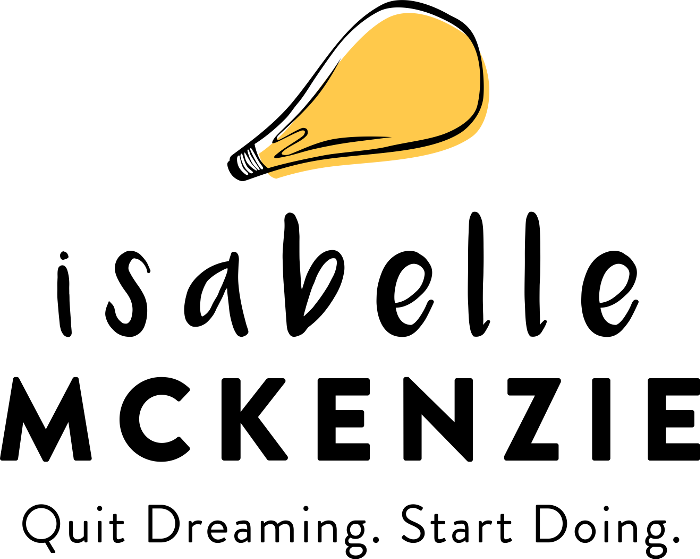
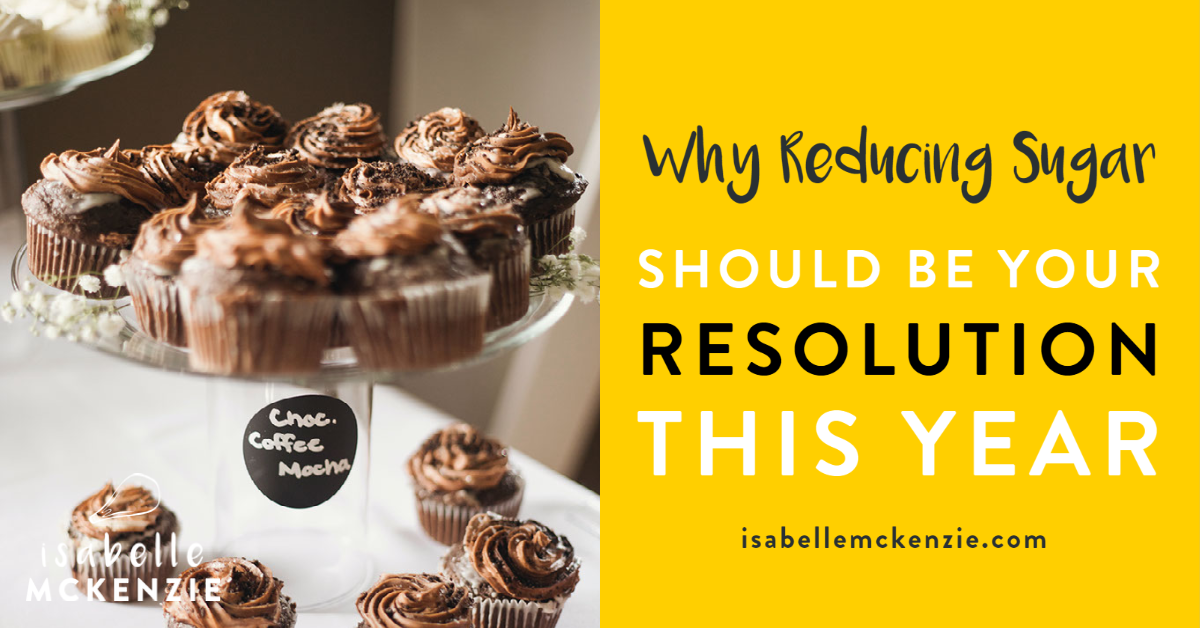






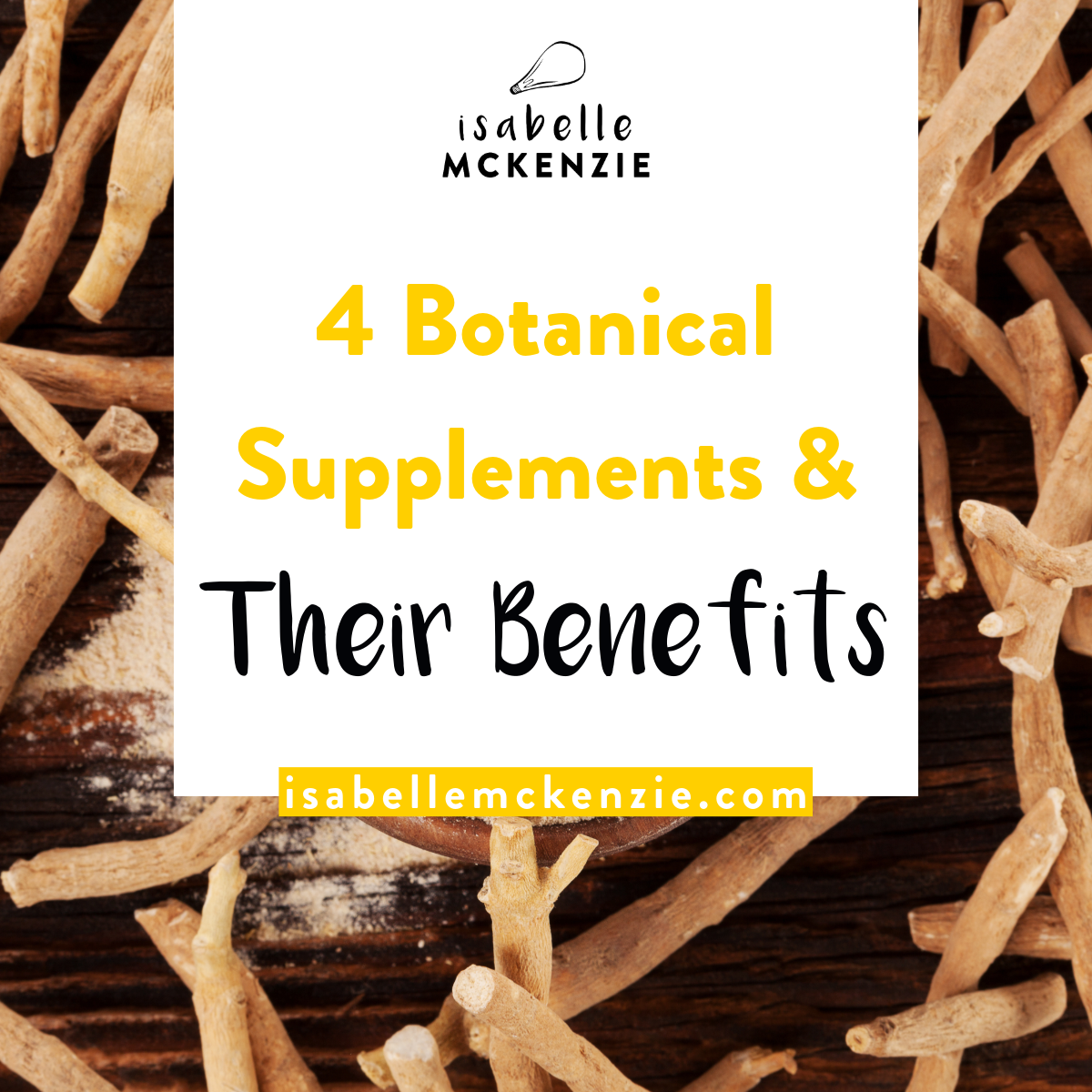
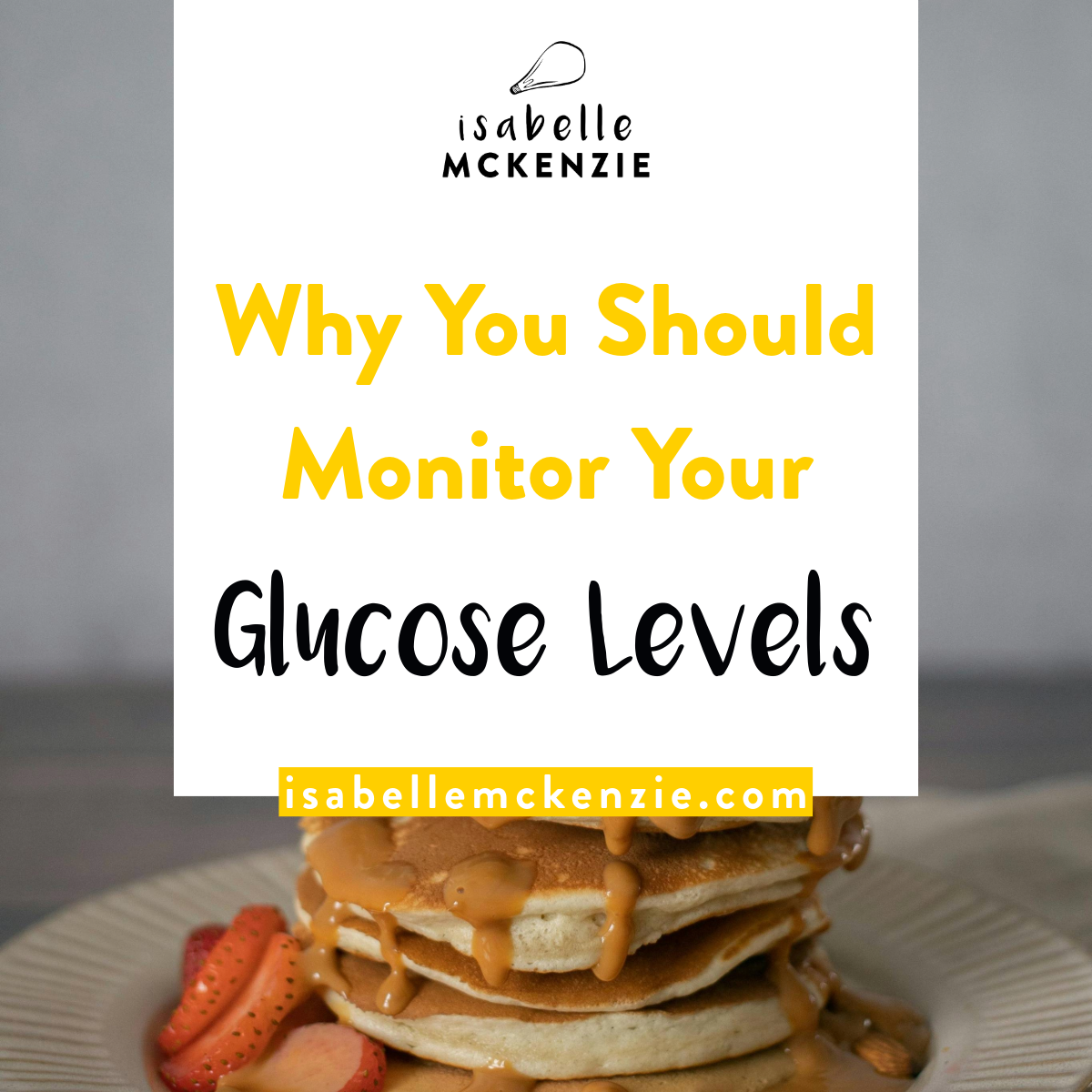



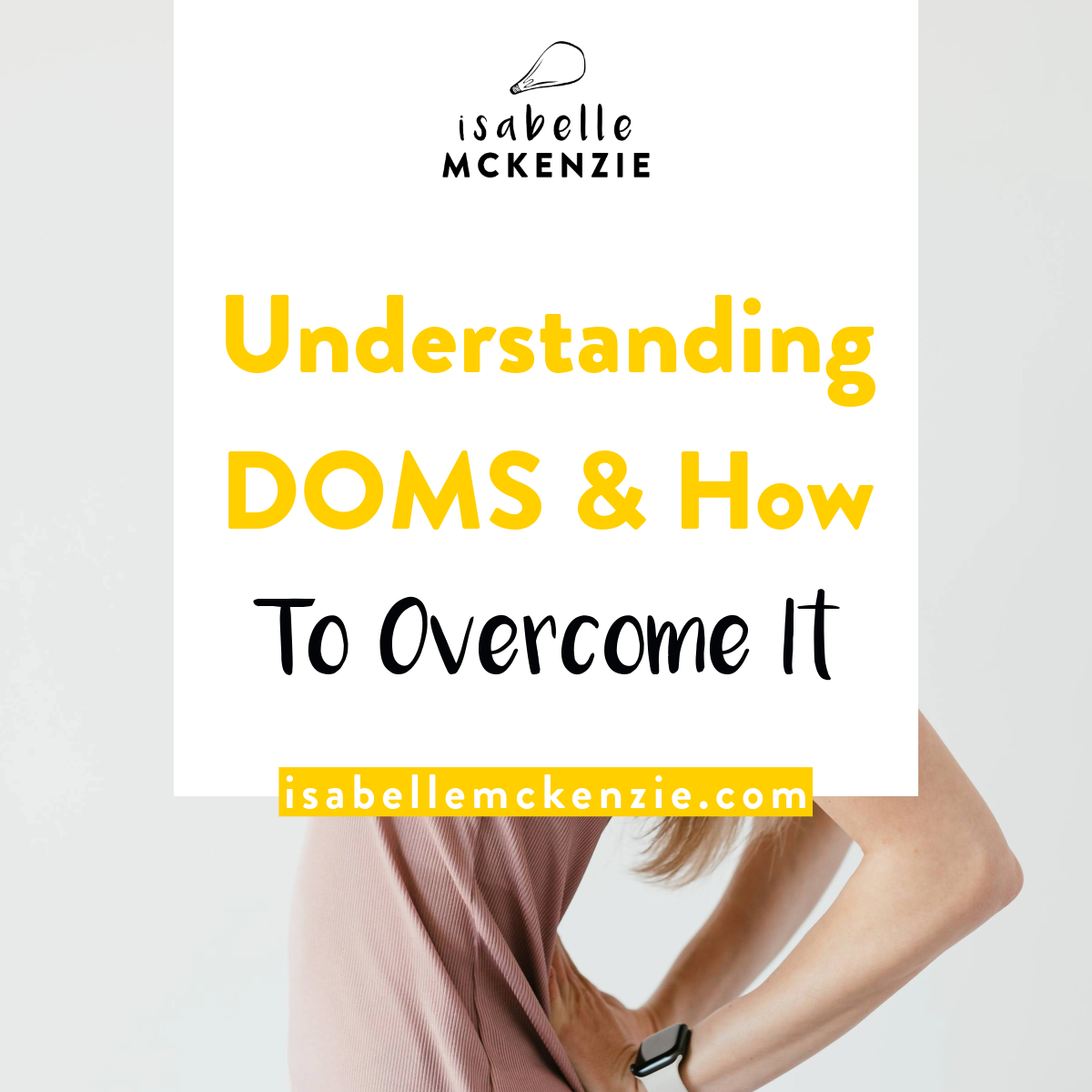
… yup, the Isabelle behind the IsabelleMcKenzie.com!
Instagram: @ItsIsabelleM | Pinterest: @ItsIsabelleM | Subscribe on Youtube
I’m dedicated to helping teach people how to live their happiest, healthiest life and reach their goals so that they can create the lifestyle of their dreams with integrity & purpose.
I focus on self-care, mind, body and health, dedicated to helping teach peeps how to live their happiest, healthiest life and reach their goals so that they can create the life that will have them jumping out of their bed in the morning to actually live!
Read More >